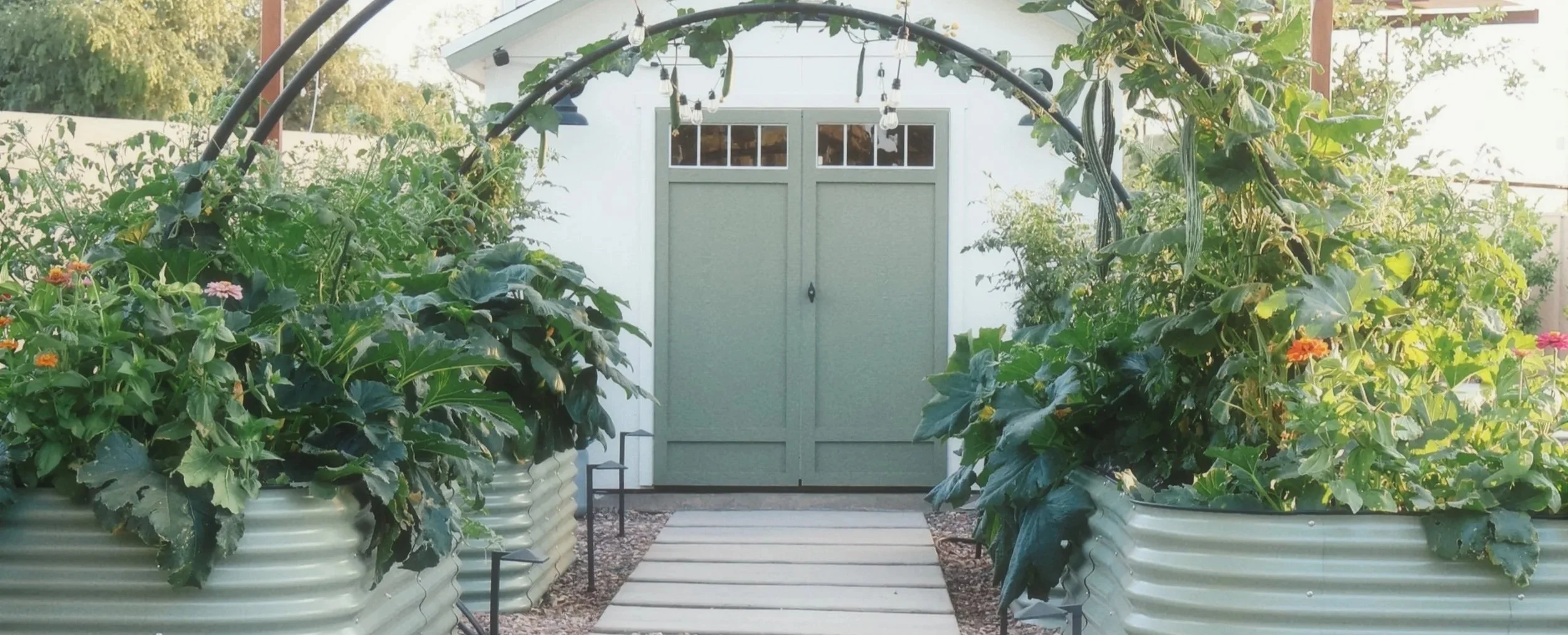When and What to Plant in Phoenix (Zone 9b)
If you’re new to gardening in Phoenix, the seasons can feel backward. Our summers are long and hot, and most of our planting happens before or after the heat. Once you understand the rhythm, though, it’s surprisingly simple. We actually get two big growing seasons every year.
If you’re a beginner in Zone 9b, I recommend planting twice a year:
Spring/Summer Garden: February – March
Fall/Winter Garden: October – November
Learning this timing is the secret to growing successfully in the desert.
Spring & Summer Garden (Plant Feb–March)
When the days start warming but before the extreme heat, focus on crops that love sunshine.
Plant these now:
Tomatoes – cherry, early girl, and heat-tolerant varieties (my favorite variety is Sun Gold- they are prolific and delicious)
Zucchini & Summer Squash – quick growers with generous yields (my favorite is Black Beauty Zucchini)
Basil & Oregano – thrive in warm soil and full sun
Cucumbers – make sure you have a trellis to support these climbing plants (my favorite variety is Striped Armenian)
Jalapeño – plant early to let them mature before peak heat
Sunflowers & Zinnias – cheerful pollinator magnets that handle heat
Tip: Mulch well and water deeply — it helps the roots stay cool when the heat arrives.
Fall & Winter Garden (Plant Oct–Nov)
As the weather cools, it’s time for leafy greens, roots, and cool-weather herbs.
Plant these now:
Lettuce Mixes & Spinach – fast-growing, tender, and perfect for salads (my favorite is Matador Spinach and Mesclun lettuce)
Carrots & Radishes – easy for kids to grow and harvest (try Danvers carrots and French Breakfast Radishes)
Broccoli– plant transplants for best results
Sugar Snap Peas – love the cool air and climb beautifully on trellises (one of my favorites is Cascadia Sugar Snap Peas)
Cilantro & Parsley – thrive when temps stay below 85°F
Beets & Swiss Chard – nutrient-rich and beautiful in raised beds
Calendula & Marigolds – add color and attract pollinators even in winter
Tip: Desert winters are mild, but seedlings still need steady watering. Check moisture often — cold air can be deceptively dry.
Bonus: What Not to Plant in Summer
Once daytime temps push past 100°F, even heat-tolerant plants struggle. Skip new plantings from June through August, and focus on maintenance:
Shade cloth over existing beds
Deep morning watering
Planning your next season’s crops
Why It Matters
Understanding Phoenix’s planting rhythm helps you work with the desert instead of against it. Once you get the timing right, you’ll be amazed at how much food — and joy — you can grow year-round.
